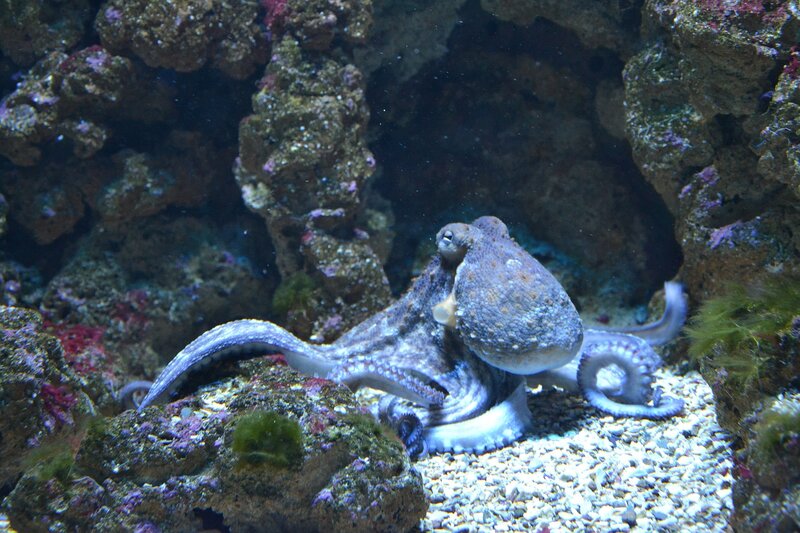Today, on October 8, we celebrate World Octopus Day. With the recent success of “My Octopus Teacher” on Netflix, these remarkable creatures are once again in the spotlight. Here are some facts about octopi, one of the most intelligent, adaptable animals in the animal kingdom.
—
1. The oldest known octopus fossil belongs to an animal that lived 296 million years ago. It has been described as a “flattened cow patty,” but has the telltale eight arms and two eyes.
2. According to the World Animal Foundation, octopi have an excellent sense of touch; their suckers have receptors that enable an octopus to taste what it is touching.
3. When an octopus is swimming, the organ that delivers blood to the organs stops beating. This makes the octopus exhausted, which may be the reason that they prefer to crawl than swim.
4. According to a 2017 study, octopi weren’t always soft creatures. Their and squids’ ancestors used to have hard shells, but lost them during the Jurassic and Cretaceous periods. This loss helped them become more agile to evade predators and catch prey.
5. All octopi are thought to have venom that comes from bacteria living inside them. While most don’t have enough poison to harm people, a bite from a small blue-ringed octopus can paralyse a human adult in minutes.

6. To survive in the deep sea, octopi evolved a copper rather than iron-based blood called hemocyanin, which turns its blood blue. This is more efficient at transporting oxygen than hemoglobin when water temperatures are low and oxygen is scarce. However, this also causes them to be sensitive to changes in acidity. If the surrounding water’s pH dips too low, octopi can’t circulate enough oxygen, a worrying find considering that oceans are gradually heating up and becoming more acidic.
7. Compared to octopi living in tanks with stimulating decor like shells, those living in more barren conditions get extremely stressed out and, devoid of mental stimulation, can engage in autophagy, or eating their own appendages, to cope.
8. Two-thirds of an octopus’ neurons are in its arms, not its head. As a result, the arms are capable of problem solving, like how to open a shellfish, while their owners are doing something else. The arms can even react after being severed; in an experiment, severed arms jerked away when researchers pinched them.
9. Octopi die shortly after mating and giving birth. The species practice “external fertilisation,” meaning that multiple males either insert their spermatophores directly into a tubular funnel that the female uses to breathe, or they literally hand her the sperm, which she always accepts. Afterwards, the males leave to die. The females can lay up to 400 000 eggs, which they guard. Once the eggs hatch, the female’s body undergoes “cellular suicide,” starting from the optic glands and rippling outward through her tissues and organs until she dies.
10. As a whole, octopuses are not currently listed as endangered or threatened by the IUCN Red List. Nevertheless, studies show that octopus populations have been decreasing due to overfishing and habitat loss.

Much of the behaviour of octopi remains a mystery to researchers. However, they are truly one of nature’s most marvellous creatures and will sadly be another casualty in the war that humanity is waging against the planet. Celebrating World Octopus Day should bring their plight to the fore and offer another reason to reexamine our relationship with nature.
You might also like: 13 Endangered Marine Species in 2023

















